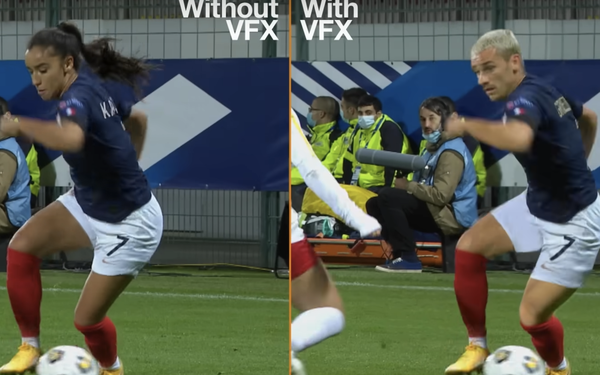
At this year’s Grand Clios (held on May
1), content about women won big.
Not unexpectedly, “Barbie” the movie earned two Grand Clios. And “WoMen,” a spot for France Telecom’s Orange, released
almost a year ago, won the Grand Clio in four categories: branded entertainment & content, creative effectiveness, social video, and film under five minutes.
Coming up next month, (June 17
-21) The Cannes Lions has also hugely expanded its award classifications. There’s something for everyone, including “video games played in under five minutes.” (Sorry, I made
that up.)
In response to the decades of change in the ad industry, the Cannes festival even omits the term “advertising” from its name because it’s too limiting.
But
narrowing it down to video, and creative, one of the questions going into this year’s awards show is whether the “WoMen” spot will also sweep at Cannes Lions.
advertisement
advertisement
An
immediate viral sensation, the spot from Marcel-Paris, part of the Publicis Groupe, aims to excite interest in women’s football (soccer) in France, where it is less appreciated and watched than
in the U.S or U.K. To get male fans engaged, it pulls off a techno-shocker.
The spot opens with quick cuts of clips showing spellbinding action on the pitch,
set to dramatic theme music and the screaming narration of announcers, color commentators, and excited fans. In this case, the focus appears to be on the skilled footwork of French soccer star Antoine
Griezmann and the goal-scoring genius of his world-famous teammate, Kylian Mbappe.
But about halfway through the two-minute spot, we see words on the screen that
read, “Only les Bleus can give us these emotions,” referring to the nickname for the French men’s national team. “But that’s not them you’ve just
seen.”
As the footage rewinds, the ad reveals that the pullback pass, driving headers, and goals were achieved by members of France's women's national team, nicknamed Les
Bleues, with the male players’ heads and bodies superimposed on female players like Sakina Karchaoui and Selma Bacha.
But I found that the making of the deepfake creeped me out. In a
split screen, headlined “without VFX” and “with VFX,” we get to see how the magic happens and rewatch the plays by the original female players. An end card reads:
“At Orange, we support Les Bleus and Les Bleues," adding the second “e” into the male version of the name.
I understand that the agency wanted to come up with a dramatic way
of getting male attention. In targeting existing fans, it’s almost like that recent spot for Impossible plant-meat that appeals head-on to serious male meat-eaters.
But from
the time it was released, the spot has been divisive, equally revered and reviled. On the one hand, there are those who marvel at the visual effects and find it a dazzling way to drag men kicking and
screaming into acknowledging the excitement of female football. It’s also an interesting setup for confronting gender bias.
On the other, it’s a depressing reality to have to
resort to literally making women into men to get their due.
Obviously, the women’s game is not identical to men’s, and that’s part of the pleasure of watching it.
In England, Lewes football club chief executive Maggie Murphy commented on BBC Radio that a lot of people see men’s football “as the pinnacle of success and that’s what
women’s football should look like, but women’s football will never look like that because it is not men’s football. And there’s plenty of things women’s football does
better or differently.”
For all the barriers to gender equality -- including pay, viewership, ad revenue, poorer facilities and fewer opportunities -- former executive director of
Women’s Soccer Australia Heather Reid told CNN Sports it is still “sexist attitudes” and “shifting the attitudinal barriers that’s the toughest.”
The same
was proven this year in women’s basketball Final Four. Caitlin Clark broke records and barriers, and was chosen for the WNBA, but her salary is laughable compared to the men. Still,
she has helped to hype women's sports, and show what a unifying power it has.
In the end, I’m not a fan of the gender switcheroo. Putting out this piece of video trickery to show
“women-- they’re just as good as men!” misses the point of the distinct greatness of the women’s games.
In the end, it demonstrates how elusive true equality
still is.
And we shall see how the ad fares at Cannes.